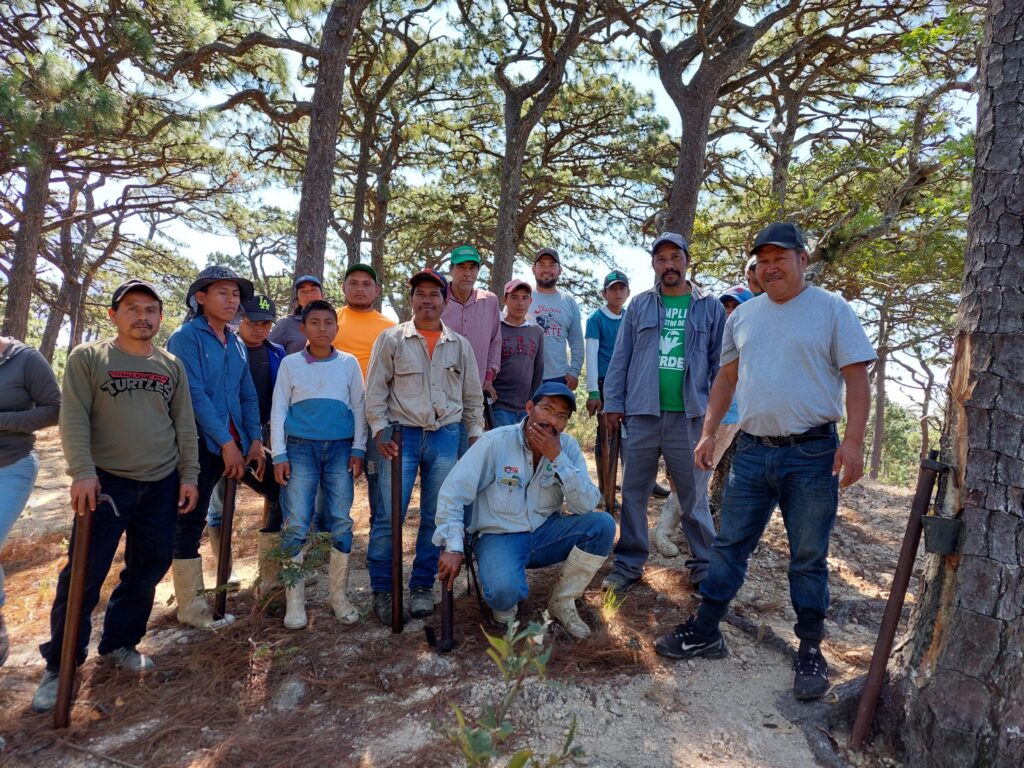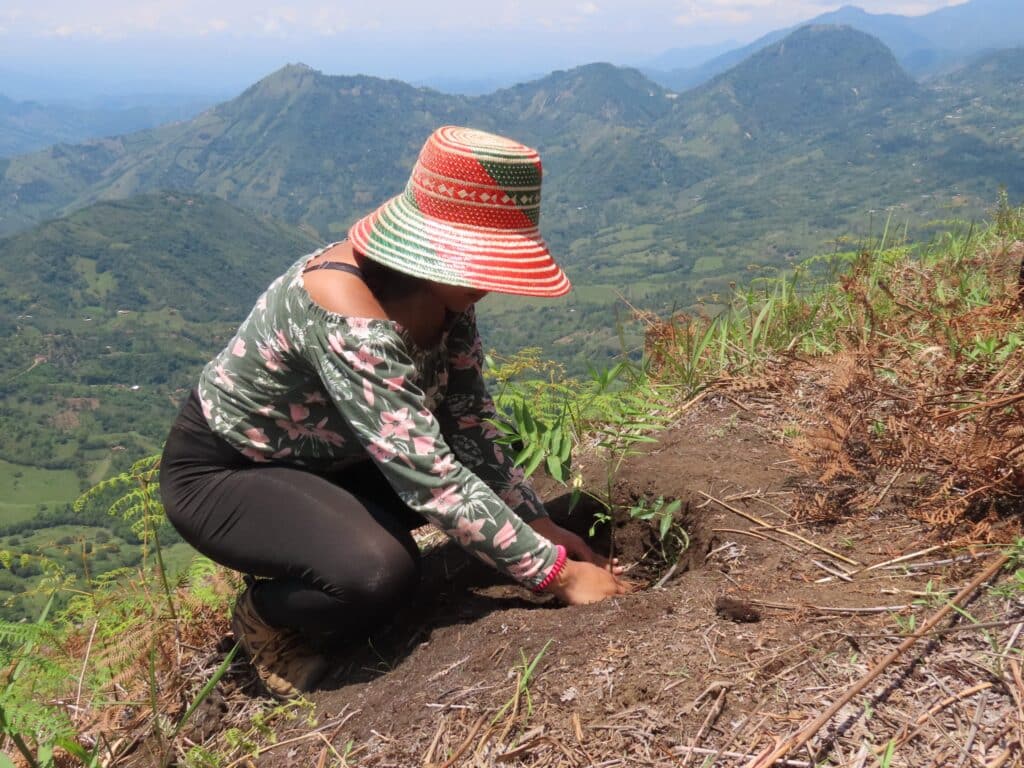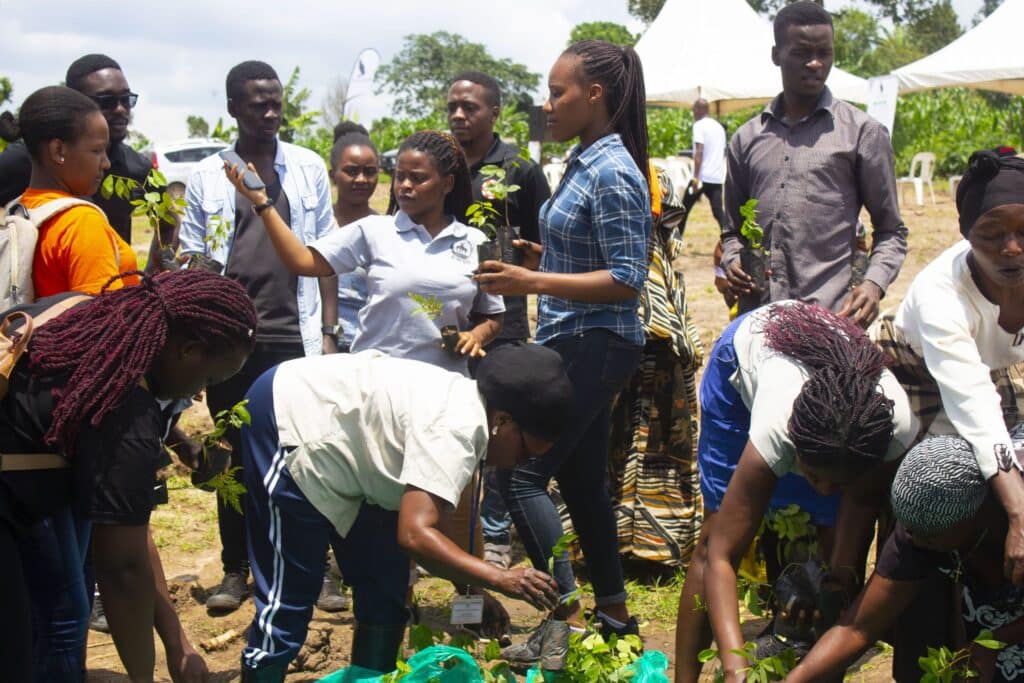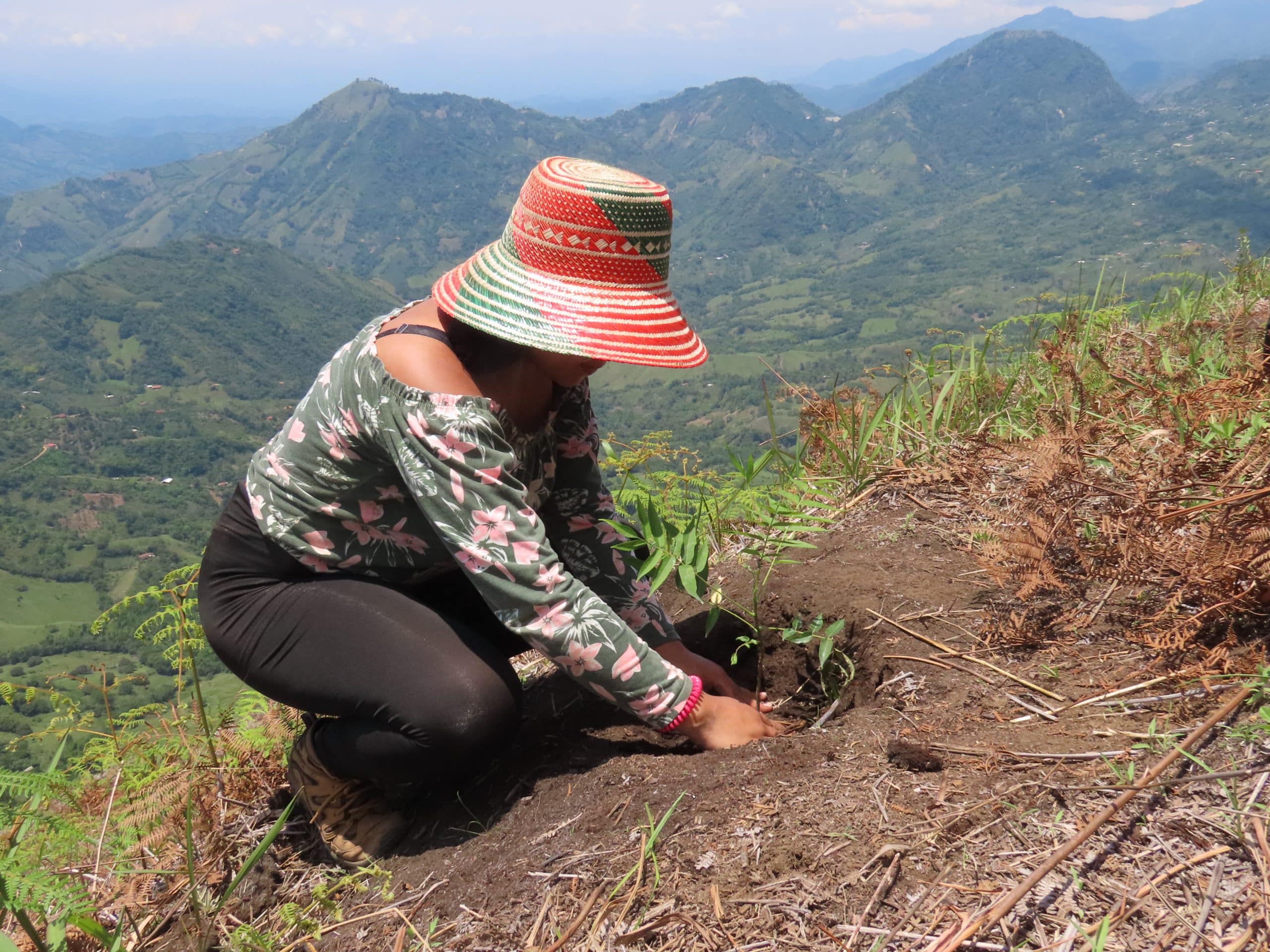Before the agricultural revolution 12,000 years ago, Earth is believed to have hosted around six trillion trees. Today, this number has fallen to below three trillion. Over 10 billion trees are felled annually costing the global economy $6.3 trillion.
Founded in 2016 and convened by Restore Our Planet, Trillion Trees (TT) is a unique partnership of three of the world’s leading conservation organisations – the Wildlife Conservation Society (WCS), BirdLife International and WWF-UK – with the aim to speed up and scale up the protection and restoration of forests.
Conceived as an ambitious global habitat restoration and protection initiative, TT works with national and local governments and on the ground to drive forest conservation in the context of improving biodiverse landscapes, promoting and securing indigenous community land rights and developing alternative incomes. The organisation focuses on entire landscapes and long-term sustainability, bringing together the economic, social and ecological needs of communities and habitats around the world, with a focus on the forests and forest frontiers across Central and South America, Sub-Saharan Africa and South-East Asia. Across the multiple forest landscapes within the partnership, there are 371 million people living in and around the forests, along with 3,272 key indicator species within encompassing Key Biodiversity Areas, and carbon stocks of 319 GtCO2.
Looking beyond tree-planting for forest conservation

A group of resin collectors in Sierra del Sur, Mexico, members of farming communities who are now supported by a sustainable forestry business. Photo: Pronatura Sur Mexico
‘The right trees in the right places, in the right way’ is TT’s guiding principle. Consequently, TT’s supported projects are not solely focused on planting trees but to protect existing forests, some of which are ancient and foster rich mosaics of wildlife, which goes hand in hand with local socio-economic development that discourages deforestation.
‘Nature-based solutions – and forests specifically – featured for the first time ever in the cover text of a COP agreement; an historic commitment to protect 30% of the planet by 2030 was reached at CBD COP15 in Montreal in December and the newly elected President Lula has pledged to protect the forests of Brazil. Biodiversity has finally made it into the mainstream,” writes Executive Director, John Lotspeich in the TT 2022 Impact Report.
Though tree planting is not a silver bullet to address climate change, restoring 0.9 billion hectares of forest area could capture around two-thirds of the human-made carbon emissions currently in the atmosphere, according to the Global Tree Restoration Potential study in 2019. ‘Alongside others in the global Trillion Trees movement, we are seeing a shift away from ineffective tree-planting schemes (…), towards a better understanding of tree-planting – and growing – within a programme of quality forest restoration.’
Encouraging native and diverse plant growth is the most cost-effective method of forest restoration. However, severely depleted land often requires manual assistance and tree planting of native species. Non-native species can harm local ecosystems, but specific cash crops or timber species can enrich ecosystems and support communities at the same time, if chosen carefully and well-managed.
Trillion Trees across the globe

Member of the Cañamomo indigenous community planting trees to restore a degraded hillside in Caldas department of the Western Andes. Photos: WCS Colombia
TT’s priority over the coming year is putting high-quality restoration into action by launching the ‘ReForest Catalyst Mechanism’ designed to kick-start initiatives supported by sustainable financing at scale.
Across Mexico’s southern mountain range and the Brazilian State of Amazonas, we are supporting improved protection measures to combat increasing rates of deforestation. Our partners are working on sustainable resin production as alternative incomes in the Sierra del Sur and creating investment initiatives to incentivise the protection of more than 35,000㎡ of Amazon forests.
Across Colombia, Uganda and Kenya our focus is on quality restoration. We are working with Indigenous communities who are replanting the Colombian Andean forests degraded and fragmented by cattle ranching. The catchment area supports 70% of the country’s population.
Following rapid urbanisation near the Ugandan capital of Kampala, we are working with communities to manage 642 hectares of central forests allowing trees to regenerate naturally. Last year saw the growth of 311,000 new shoots and 45,000 saplings planted.
In Kenya, we are working with the UK Government’s Partnering for Accelerated Climate Transitions (PACT) in restoring the 32,000-hectare Kaptagat forest. The project addresses land degradation caused by unsustainable land use and promotes sustainable livelihoods and women-led tree nurseries.
Our partners at WWF Chile are providing technical guidance to their Ministry for the Environment for improved management as the country aims to be net zero by 2050. They are focusing on decarbonisation projects and promoting forest restoration with guidance from TT.

Community tree planting, Nakindiba Forest. Photo: NatureUganda
These are specific examples of how TT is working to achieve its 2030 partnership targets: an additional 70m hectares of forests under improved management, 35m under improved protection and 20m under quality restoration. This ‘joint venture for forests’ supports the work on the ground but also works at all levels to support communities and governments to:
- deliver on their commitments to end deforestation
- secure much-needed business investment, and
- re-shape incentives to improve protected forest areas and the ancient lands of forest communities and indigenous peoples.
TT is a large organisation, but our work wouldn’t be possible were it not for the countless individuals, communities and organisations dedicated to bringing about a greener planet with rich ecosystems and cleaner air and water. To find out more follow our work on the Trillion Trees website.


